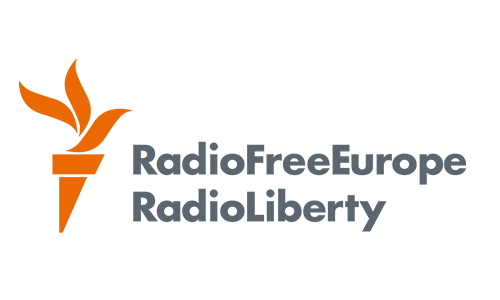Our Mission, Journalism, and Editorial Independence
RFE/RL journalists report the news in 23 countries where a free press is banned by the government or not fully established. We provide what many people cannot get locally: uncensored news, responsible discussion, and open debate. RFE/RL strives to meet the highest standards of objective journalism and report the facts, undaunted by pressure or attempted influence.
RFE/RL is registered with the IRS as a private, nonprofit Sec. 501(c)3 corporation, and is funded by a grant from the U.S. Congress through the United States Agency for Global Media (USAGM) as a private grantee. RFE/RL’s editorial independence is protected by U.S. law.
Mission Statement
RFE/RL’ s mission is to promote democratic values and institutions and advance human rights by reporting the news in countries where a free press is banned by the government or not fully established. RFE/RL’ s journalists provide what many people cannot get locally: uncensored news and open debate. RFE/RL strives to meet the highest standards of objective journalism and report the facts, undaunted by pressure or attempted influence.
Based on the conviction that the first requirement of democracy is a well-informed citizenry:
● RFE/RL’ s independent journalism provides fair and objective news, analysis, and discussion of domestic, regional, and international issues crucial to healthy democracies and free markets.
● RFE/RL strengthens civil societies by projecting democratic and pluralistic values.
● RFE/RL combats all forms of intolerance and promotes mutual understanding among peoples.
● RFE/RL provides a model for local media, assists in training to enhance media professionalism and independence, and develops partnerships with local media outlets.
23 Countries, 27 Languages
We rely on our networks of local reporters to provide accurate news and information in 27 languages and 23 countries. RFE/RL also reaches Russian-speaking audiences in 26 countries (12 beyond the RFE/RL region) and globally via the Current Time digital television network. With over 600 full-time journalists, 1,300 freelancers, and 21 local bureaus, RFE/RL is one of the most comprehensive news operations in the world.
Afghan Service
RFE/RL’ s Dari- and Pashto-language Radio Azadi is an online pioneer and media leader in Afghanistan, reaching 25 percent of the adult audience nationally on radio, SMS, and the Internet.
Armenian Service
RFE/RL’ s Armenian Service has been a consistent and dependable provider of independent information in Armenia for over 50 years. Today, it is a trusted source of information and regularly cited and reprinted by local media.
Azerbaijani Service
In an environment of total government control over national media, Radio Azadliq has built a solid reputation as a leading independent media outlet in Azerbaijan.
Balkan Service
RFE/RL’ s Balkan Service is a professional and balanced news source in a region where most outlets reflect ethnic divisions, and media independence is elusive.
Belarus Service
RFE/RL’ s Radio Svaboda is one of the leading providers of news and analysis to Belarusian audiences in their own language. It is a bulwark against pervasive Russian propaganda, and a trailblazer in social media.
Bulgarian Service
RFE/RL’ s Bulgarian Service, known locally as Svobodna Evropa, has relaunched after a 15-year absence, providing independent news and original analysis to help strengthen a media landscape weakened by corruption and the monopolization of ownership.
Georgian Service
RFE/RL’ s Georgian Service is widely regarded as the only objective and unbiased source of information in Georgia, where the government still retains a firm grip on media.
Iranian Service
RFE/RL’ s Radio Farda breaks through government censorship to deliver accurate news and provide a platform for informed discussion and debate to audiences in Iran.
Kazakh Service
RFE/RL’ s Radio Azattyq has been an important source of information for people in Kazakhstan for decades. In 2009, Azattyq won the prestigious 2009 Online Journalism Award for “standing in defense of citizen’ s rights to seek and receive information.”


